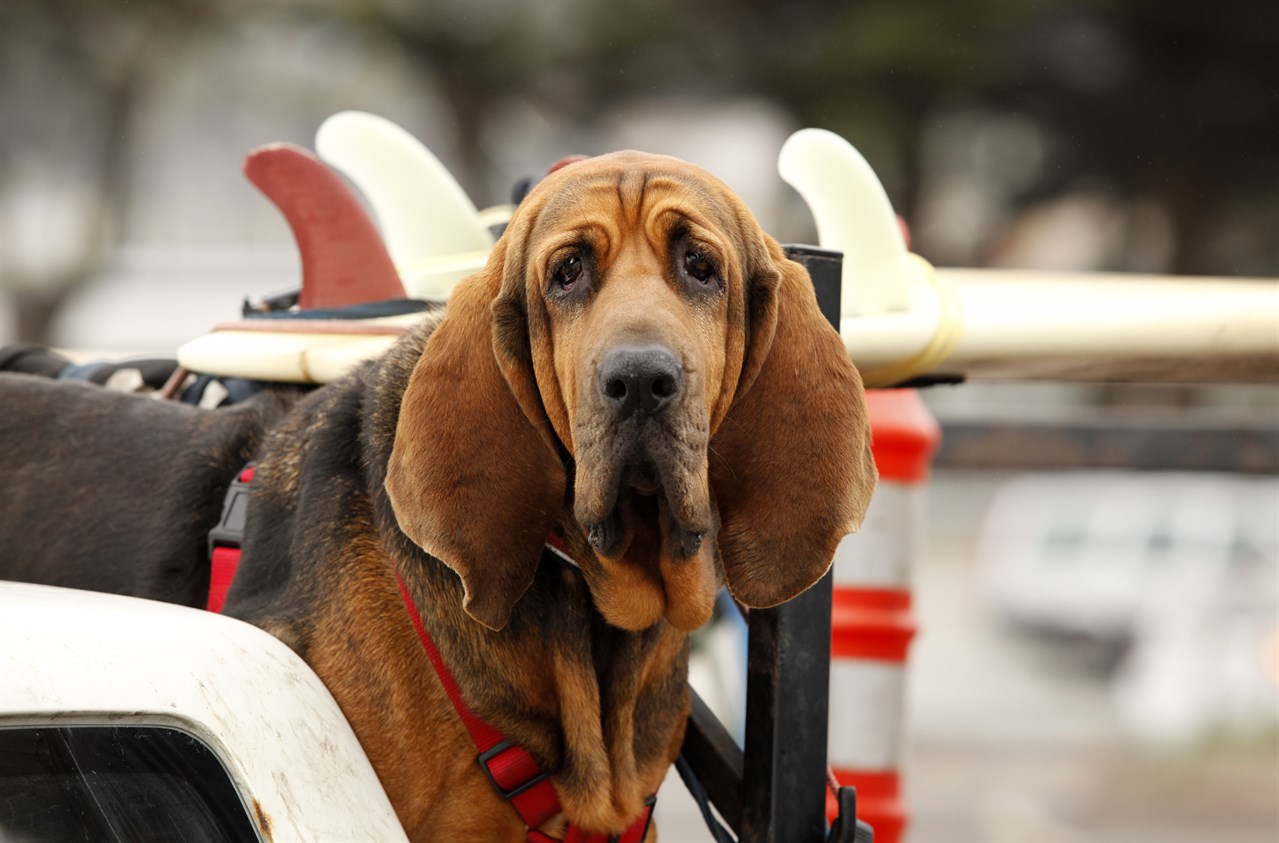Sleeping Requirements and Habits of Bloodhound Dogs

Like all dogs, Bloodhounds have specific sleeping requirements and habits that contribute to their overall health and well-being. Understanding their sleep needs can help you provide a comfortable and restful environment for your Bloodhound.
- Hours of Sleep: Bloodhounds, like many dog breeds, require a significant amount of sleep, especially during their puppy and adolescent stages. On average, adult dogs, including Bloodhounds, sleep anywhere from 12 to 14 hours a day. Puppies may sleep even more, sometimes up to 18 hours a day.
- Nighttime Sleep: Bloodhounds tend to be more active during the daytime and are known to be relatively calm and peaceful at night. Providing them with a quiet and comfortable sleeping area, such as a dog bed or crate, can help them rest undisturbed.
- Comfortable Bedding: Bloodhounds are known for their loose, wrinkled skin, and they can be sensitive to pressure points and discomfort. Providing a well-padded and supportive dog bed can help prevent joint issues and provide a comfortable resting place.
- Crate Training: Many Bloodhound owners use crate training as a way to provide a secure and comfortable sleeping space for their dogs, especially when they are puppies. A properly sized crate can serve as a cosy den-like area where they feel safe and secure.
- Consistency: Establishing a consistent sleeping routine can help your Bloodhound settle into a regular sleep pattern. Try to go to bed and wake up at the same times each day, and provide your dog with a consistent bedtime routine to signal that it's time to sleep.
- Monitoring Health: Pay attention to any changes in your Bloodhound's sleeping habits. If you notice excessive daytime sleepiness, restlessness at night, or other unusual behaviours, it may be an indicator of an underlying health issue, and you should consult your veterinarian.
- Age-Related Changes: As Bloodhounds age, their sleeping habits may change. Senior Bloodhounds may sleep more and be less active during the day. Provide them with extra comfort and support to accommodate their changing needs.
- Exercise and Mental Stimulation: Regular exercise and mental stimulation during the day can help your Bloodhound sleep better at night. Adequate physical and mental activity can help them burn off excess energy and reduce restlessness.
- Attention to Diet: Avoid feeding your Bloodhound a large meal right before bedtime, as it can lead to discomfort and potential digestive issues. Offer a small and easily digestible snack if needed.
In summary, Bloodhounds, like all dogs, have specific sleeping requirements and habits that contribute to their overall health and well-being. Providing them with a comfortable sleeping area, a consistent routine, and attention to their physical and mental needs can help ensure that they get the restful sleep they need to stay happy and healthy.
Bloodhound puppies for sale
- Find Bloodhound puppies for sale in ACT
- Find Bloodhound puppies for sale in NSW
- Find Bloodhound puppies for sale in NT
- Find Bloodhound puppies for sale in QLD
- Find Bloodhound puppies for sale in SA
- Find Bloodhound puppies for sale in TAS
- Find Bloodhound puppies for sale in VIC
- Find Bloodhound puppies for sale in WA